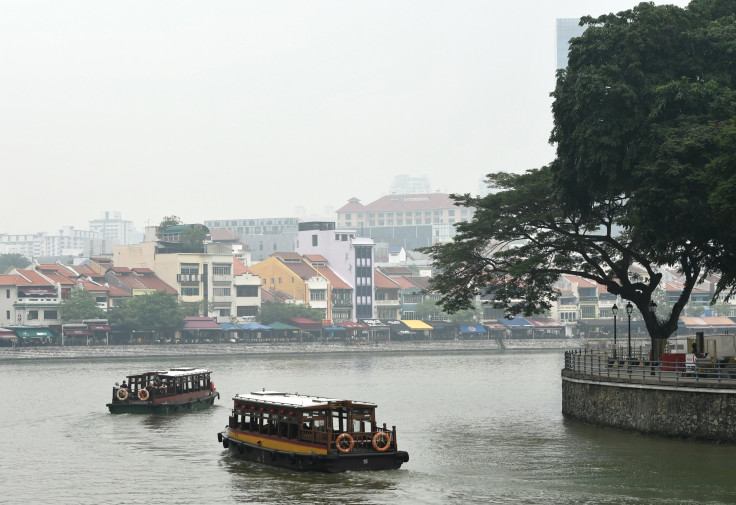Singapore May Be In Recession, May Weaken Currency, Economists Say

Singapore, the Asian economic miracle that celebrated its 50th birthday in August, may have slipped into recession in the third quarter as China continued to slow, likely prompting a central bank move to give the economy a boost by allowing the currency to weaken. Singapore is one of the first major countries to report on its economy and a bad report could indicate others were weak too.
The economy likely contracted 0.1 percent from the second quarter, CNBC reported, citing a Reuters survey of economists. That would be a second straight decline -- the economy shrank 4.6 percent in the second quarter from the first -- which is the common or "technical" definition of a recession. Singapore's last recession was in 2008, during the global financial crisis.
Among the reasons this time are China's slowdown, a tight local labor market and falling inflation. Tight labor means less production, higher salary costs or both. Weak inflation -- a global phenomenon due to lower oil prices -- means businesses and consumers can put off some purchases, meaning less economic activity.
The government will release the economic report Wednesday at 8 a.m. in Singapore, (8 p.m. EDT Tuesday), the same time the Monetary Authority of Singapore announces whether it will give the economy a boost. While most central banks stimulate their economies by cutting interest rates, Singapore's adjusts the range at which the Singapore dollar trades against a basket of currencies. Earlier this year, it adjusted the range less than the basket had appreciated, resulting in a weaker currency, which should help the country's big export industry. Twelve of 18 economists surveyed by Reuters expect a similar move on Wednesday.
"Exports and industrial output have slumped hard alongside port activity as a consequence of China wobbles exacerbating global demand deficiency," CNBC cited Mizuho Bank economist Vishnu Varathan as saying. "Domestic demand has also been dented."
Varathan indicated the weakness may continue. "Any technical recession is not merely fleeting technicality," he said.
The weak economy hasn't hurt the ruling People's Action Party led by Prime Minister Lee Hsien Loong and founded by his father Lee Kuan Yew, who died earlier this year. The party strengthened its majority in parliament last month, after stumbling in the 2011 elections. It did so by paying more attention to populist issues, according to the Financial Times.
© Copyright IBTimes 2024. All rights reserved.




















